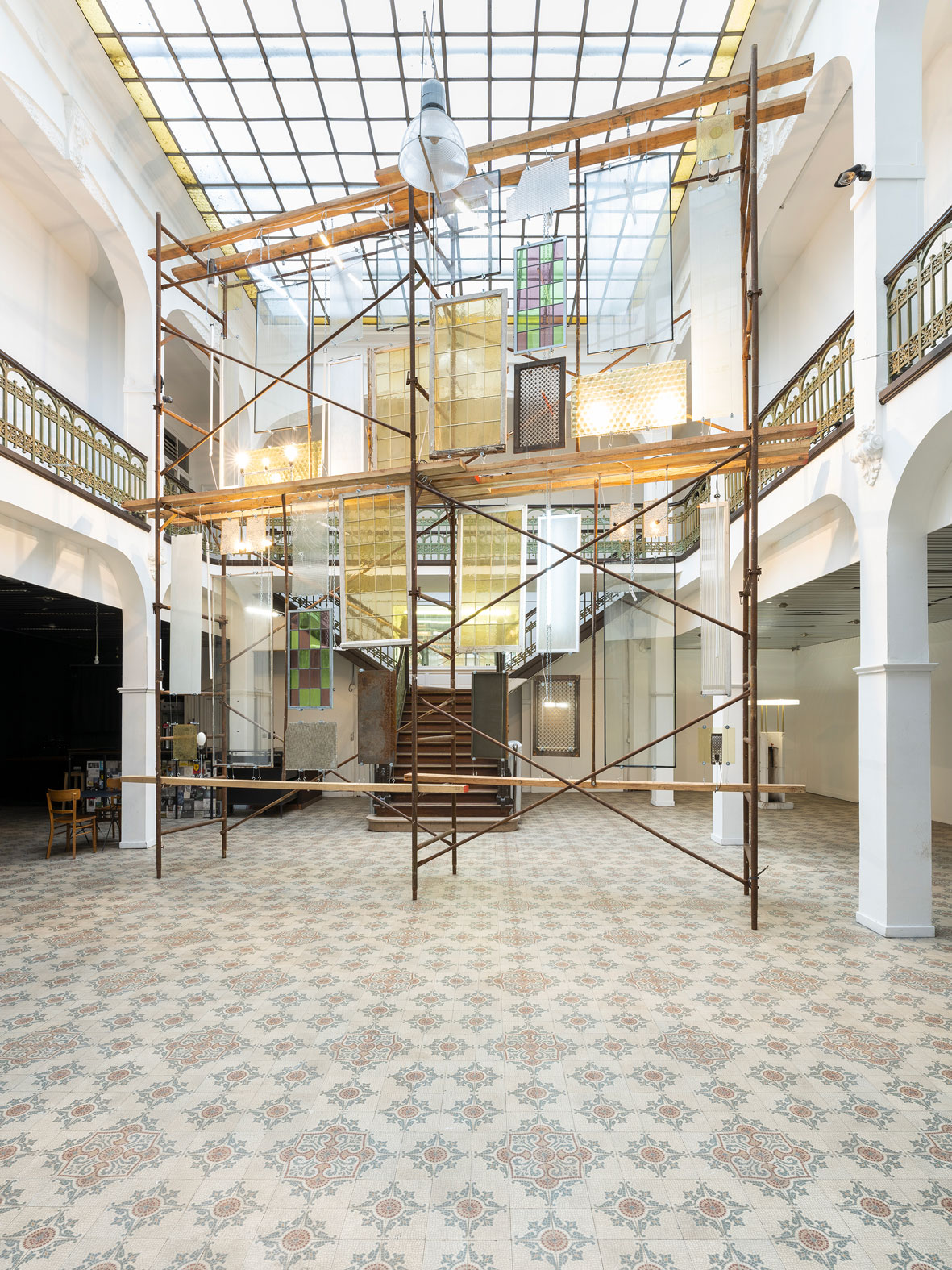
"The city can be conceived as a cybernetic organism, half-mechanical, half-human, to which new prostheses are grafted, day after day, night after night, onto the underbelly of another history. It remains an infinite source of inspiration, a complex and multifaceted entity where value systems, which simultaneously bind and isolate us, accumulate in layers and sediments of architecture. Its interlocking facades speak volumes about the identities they contain and protect, about these human flows, these rises and falls, these potential narratives compressed in matter and time. By guiding our gaze to the constituent elements of public space, by thinking beyond the banality of everyday life and by slightly modifying reality, Arnaud Eubelen reveals the arrangement of the underground systems of our social practices. Through the sculptural action of decomposing and reassembling recovered materials, fragments, waste, rubble and scraps, he allows us to observe the chaotic energy, the entropy, of the urban mutations that surround us. These objects retain the potential for use, but first and foremost they are in a state of transience, a present moment simply frozen by a few nuts and bolts, before their future dissolution. " Pauline Salinas